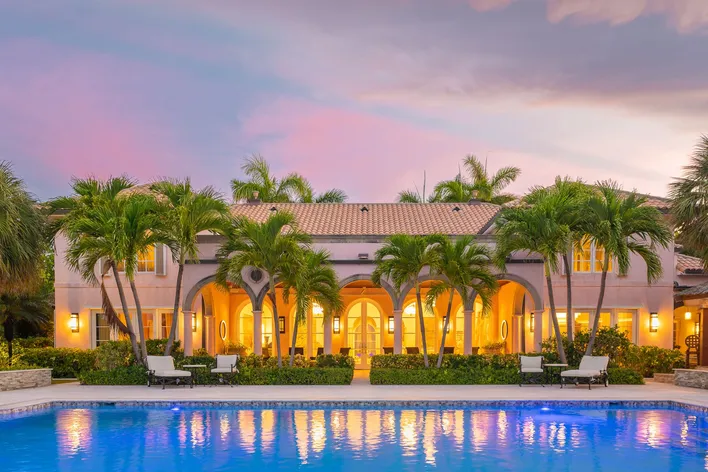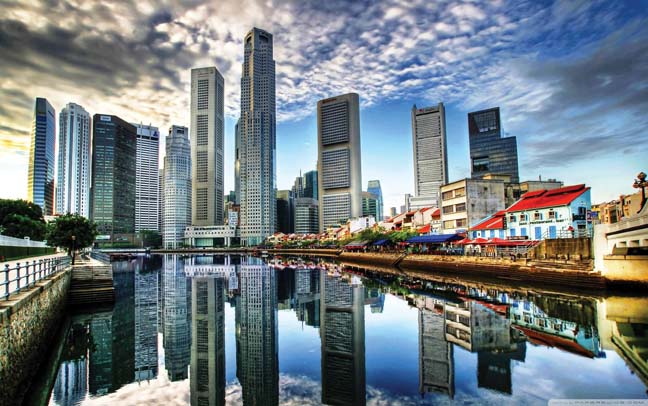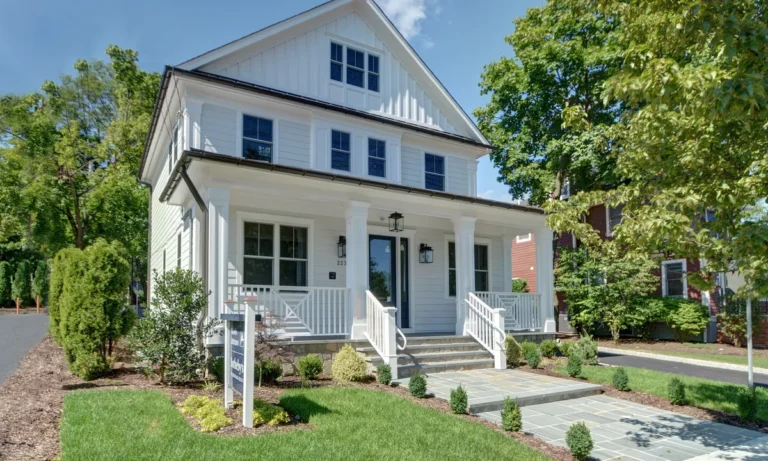It was a perfect morning on Seven Mile Beach, where the powdery white sand met the sparkling turquoise waters of the Caribbean Sea. Sarah, a New York-based finance professional, looked out from the balcony of her newly acquired condo, marvelling at the peaceful view before her. The decision to invest in Grand Cayman real estate had not been easy—after all, the world is full of beautiful destinations. But Grand Cayman offered something different: stunning natural beauty, a tax-friendly environment, and the promise of strong returns. It wasn’t just about owning a vacation home but securing a smart financial investment in a stable, growing market for Sarah. As she sipped her morning coffee, she realized she wasn’t alone. More and more buyers, from families to global investors, were discovering the appeal of Grand Cayman real estate. What makes this market so enticing, and why is it increasingly becoming a prime choice for savvy investors?
The Allure of Grand Cayman Real Estate
Grand Cayman, the largest of the three islands in the Cayman Islands, has long been a favourite destination for tourists and investors alike. With its pristine beaches, luxury lifestyle, and political stability, the island offers an ideal blend of beauty and security that attracts high-net-worth individuals worldwide. Over the years, Grand Cayman’s real estate market has grown into one of the most desirable in the Caribbean, offering opportunities for residential buyers and investors looking for strong returns on vacation rental properties.
According to the Cayman Islands Real Estate Brokers Association (CIREBA), the value of real estate transactions in Grand Cayman reached an all-time high of USD 1.2 billion in 2022, a 25% increase from the previous year. This surge in demand has been fueled by the island’s growing appeal as both a luxury destination and a stable investment market. Despite global economic uncertainties, the Grand Cayman real estate market continues to attract international buyers, drawn by the island’s tax advantages, high rental yields, and limited supply of prime properties.
Why Invest in Grand Cayman Real Estate?
Several key factors contribute to Grand Cayman’s growing reputation as a real estate investment haven:
- Tax-Free Status: One of the primary reasons investors flock to Grand Cayman is the island’s tax neutrality. There are no property, capital gains, income, or inheritance taxes in the Cayman Islands, making it an attractive destination for high-net-worth individuals and corporations seeking a tax-efficient place to invest. According to Forbes, the Cayman Islands consistently ranks among the world’s top tax havens, drawing expatriates and businesses looking to maximize their returns while enjoying the island’s luxury lifestyle.
- Strong Rental Market: Grand Cayman’s thriving tourism industry has created a strong rental market, particularly for vacation homes and short-term rental properties. With over 2.3 million visitors in 2022, according to the Cayman Islands Department of Tourism, the demand for luxury accommodations remains high, especially along the famous Seven Mile Beach. This has created significant opportunities for investors seeking short-term rental income. According to AirDNA, vacation rental properties in Grand Cayman enjoy an average occupancy rate of 75%, with the potential for even higher returns during peak travel seasons.
- In addition to the short-term rental market, long-term rentals are also in high demand, particularly among expatriates working in the island’s financial services industry. Grand Cayman is home to more than 100,000 registered companies, including major financial institutions, creating a steady demand for rental properties in areas like George Town, Camana Bay, and South Sound.
- Capital Appreciation: Real estate in Grand Cayman has shown consistent capital appreciation, particularly for oceanfront properties. The limited availability of beachfront land and increasing demand ensure that property values continue to rise over time. According to CIREBA, the average price of a luxury condominium on Seven Mile Beach increased by 12% annually between 2018 and 2022, making it one of the most sought-after locations in the Caribbean.
- In 2023, the average price for a home in Grand Cayman was around USD 1.5 million, with prime beachfront properties commanding significantly higher prices. This offers investors the potential for strong returns through rental income and long-term capital appreciation. Grand Cayman real estate remains a stable and lucrative investment as demand for luxury properties grows.
- Stable Political and Economic Environment: As a British Overseas Territory, the Cayman Islands offers political stability and a well-regulated financial system, making it an attractive destination for international investors. Based on English common law, the island’s strong legal framework provides a secure environment for property ownership, with no restrictions on foreign land or real estate ownership. This level of security, combined with the island’s growing economy, has contributed to the resilience of the real estate market, even during times of global economic uncertainty.
- Grand Cayman’s economy is primarily driven by tourism and financial services, which have proven resilient industries. The financial services sector, in particular, plays a critical role in the island’s economy, attracting a large expatriate community of professionals working in banking, law, and asset management. This contributes to the steady demand for residential real estate, particularly in prime locations near George Town and Seven Mile Beach.
Popular Areas for Real Estate Investment in Grand Cayman
- Seven Mile Beach: One of the most iconic locations in the Caribbean, Seven Mile Beach is home to some of the most luxurious properties in Grand Cayman. Condominiums and villas along this stretch of white sand are in high demand for vacation rentals and long-term investments. The average price for a condominium on Seven Mile Beach in 2023 was USD 2.8 million, with some ultra-luxury units fetching over USD 10 million, according to CIREBA.
- The limited availability of land along Seven Mile Beach has created a competitive market, with prices continuing to rise. For investors, this area offers strong rental income potential and long-term capital appreciation, making it one of the top choices for buyers looking to invest in Caribbean real estate.
- George Town and Camana Bay: As the capital of the Cayman Islands, George Town is a bustling hub of activity, offering a mix of commercial and residential properties. The nearby Camana Bay area has emerged as a premier location for modern, luxury living, with a range of high-end condominiums, townhouses, and retail spaces. Properties in this area are particularly popular with expatriates working in the financial services sector, driving demand for rental properties and owner-occupied homes.
- In 2022, the average price of a condominium in George Town was USD 1.2 million, while larger homes and townhouses in Camana Bay ranged from USD 1.5 million to USD 3 million. With its central location and proximity to the island’s business district, George Town remains an attractive option for investors seeking a mix of lifestyle and rental income opportunities.
- South Sound: South Sound offers a quieter, more residential atmosphere while still being close to the amenities of George Town. This area is popular with families and expatriates, offering larger homes with beachfront access or ocean views. The average price for a home in South Sound is around USD 1.8 million, with some beachfront estates reaching upwards of USD 5 million.
- Rum Point and Cayman Kai: On the north side of Grand Cayman, Rum Point and Cayman Kai offer a more relaxed, tranquil lifestyle away from the hustle of Seven Mile Beach. These areas are popular with buyers looking for vacation homes or rental properties in a quieter setting. Homes in Rum Point and Cayman Kai range from USD 1 million to USD 3 million, depending on the location and size of the property.
Challenges in the Grand Cayman Real Estate Market
While the Grand Cayman real estate market offers many opportunities, there are some challenges to consider:
- High Entry Costs: The cost of purchasing property in Grand Cayman, particularly in prime locations like Seven Mile Beach, can be high, making it difficult for some buyers to enter the market. In addition to the property’s price, buyers must also account for stamp duty, typically 7.5% of the purchase price, and legal and administrative fees.
- Limited Land Availability: As a small island, Grand Cayman has limited land available for development, particularly along the coast. This scarcity drives up property prices, particularly in high-demand areas like Seven Mile Beach. As a result, buyers looking for oceanfront properties may face stiff competition and rising prices.
- Environmental Risks: Grand Cayman is vulnerable to hurricanes and other natural disasters like many Caribbean islands. While modern construction standards are designed to withstand these events, potential buyers should know the risks associated with island living and invest in appropriate insurance coverage.
The Future of Grand Cayman Real Estate
Looking ahead, the future of Grand Cayman real estate appears bright. Several trends are likely to drive continued growth in the market:
- Sustainable and Eco-Friendly Development: As environmental concerns grow, more developers in Grand Cayman are focusing on sustainable, eco-friendly construction practices. New developments incorporate energy-efficient designs, solar power, and water conservation systems, aligning with the growing demand for environmentally conscious real estate.
- Growing Demand for Luxury Rentals: As tourism in Grand Cayman continues to rebound, the demand for luxury vacation rentals is expected to grow. Investors who purchase properties for short-term rentals can expect strong returns, particularly in prime locations like Seven Mile Beach.
- Infrastructure Improvements: The Cayman Islands government continues to invest in infrastructure improvements, including airport expansions and road upgrades, which will enhance the island’s accessibility and appeal to both tourists and investors.
Conclusion
Grand Cayman’s real estate market offers a unique combination of luxury, stability, and strong returns, making it one of the most attractive investment destinations in the Caribbean. Whether you’re looking for a vacation home, a rental property, or a long-term investment, Grand Cayman provides a range of opportunities for buyers. With its tax advantages, growing demand for luxury properties, and stable political environment, Grand Cayman is poised for continued growth in the years to come.
















